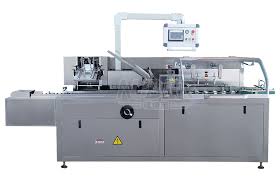Tablet press machine has a major impact on how pharmaceutical have been made in the by significantly improving their throughput rate of production. Take the ZP-9 rotary tablet press for example, which can create as much as 54.000 tablets every single hour — a number unimaginable through manual tablet-making approaches... Said quicker turnaround of manufacturing means they can access a greater part volume without sacrifice quality.
It significantly lowers the production expense by keeping operational efficiency on point hence alluring as a tablet press machine. This maintains even weight and dose in each tablet, thanks to an advanced compression technology. Such consistency in pharmaceutical production is essential for meeting industry regulations and patient safety requirements, so there is no room to compromise on it.
Another important advantage of employing a tablet press machine is that it helps in cutting down on labor costs as well. One operator can be in charge of the machine, instead of many workers to cut labor cost. By reducing the workforce, you are saving more money and also reduces human error which improves reliability of your product as return on investments.
The largest pharmaceutical companies in the world, including Johnson & Johnson produce some of their best-selling products using high-capacity tablet press machines to give them a competitive edge over others. Integrating these machines into their production lines guarantees the efficiency and scale needed to manufacture millions of tablets per day. By leveraging technology to this end, it's able both meet the demands of a global market but do so at costs that can be controlled.
On the other hand, the recent tablet press machines are durable and have a longer shelf-life. A well-maintained copy machine can last for more than 10 years, which gives long-term value and less frequent capital expenditures. In the way that this longevity results in slower depreciation and better manufacturer profitability.

Added to this, as tablet press machines are built for a variety of different table sizes and shapes it offers flexibility in order to cater to the every diverging request from pharmaceutical corporations. This flexibility can lower downtime during production changeovers which increases the machine uptime and permits overall output to be higher.
Tablet press machines are also known for their waste reduction efforts. This helps reduce the amount of raw material that wasted during production since it provides consistent and accurate compression. It not only reduces material costs but also complies with environmental sustainability, a huge concern in manufacturing anymore.
The operational speed of the tablet press machine further reduces production cycles and which means that companies can bring their products to market faster as well. This quick turnaround is especially useful in a competitive industry where time-to-market can make all the difference to determining a company's market share and profitability.
Using a tablet press machine incorporated into the production process allows pharmaceutical companies to obtain near optimum levels of efficiency whilst controlling costs. The technology that powers these machines guarantees manufacturers to be able churn out tablets in high volumes and with great consistency, so as to adhere within the range of regulations they comply under — on one end- while satisfying consumer experience expectations at the other.
Investing in a tablet press machine can produce large returns by increased production efficiency, cost reduction and consistent product quality.